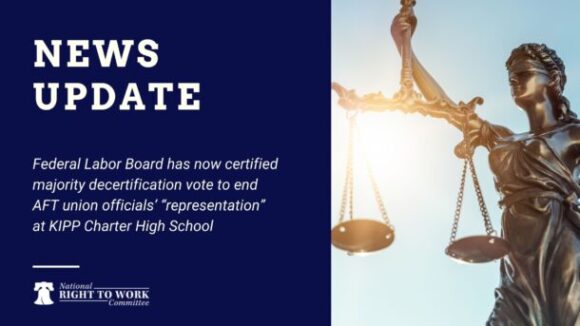Will Team Biden Weaponize Workers’ Pensions?
Big Labor abuse of worker pension and benefit funds as a means of advancing union bosses’ self-aggrandizing policy objectives is a familiar phenomenon.
Largely as a consequence of California statutes granting government union officials extensive monopoly privileges over public servants, cities and towns located across the Golden State find themselves in dire financial straits today, even though tax revenues have rebounded smartly since the Great Recession and are now surpassing expectations.
Just a few years ago, San Diego was one of the municipalities that was drowning in debt. As an Orange County Register editorial this week (see the link below to read the whole thing) recalled, in 2012 the “City in Motion” faced a pension debt of more than $2 billion and “retirement obligations eating up 20%” of its public budget.
Today, San Diego is in much better fiscal shape, thanks largely to the approval by city voters three-and-a-half years ago of Proposition B, which implemented common-sense reforms in the way municipal employees are compensated.
To be specific, Proposition B, in the Register‘s words
replaced traditional, defined-benefit pensions with 401(k)-style defined-contribution plans for all new city employees except police officers; capped new police pensions at 80 percent of final salary; excluded supplemental and specialty pay from pension calculations; directed the city to negotiate with the unions to freeze employee salaries for several years; and required that city officers and employees convicted of a felony related to their positions lose their pension benefits.
Unfortunately, thanks to an “unfair labor practice” complaint filed by government union bosses and the Big Labor bureaucrats who dominate the California Public Employment Relations Board (PERB), Proposition B has just been nullified.
On December 29, PERB members, who are mostly former union bosses and former union lawyers, found that then-San Diego Mayor Jerry Sanders and other public officials who urged voters to support Proposition B in 2012 had broken California labor laws by exercising their First Amendment rights! “The First Amendment free speech right cannot be exercised for the purpose of violating” state laws authorizing and promoting union monopoly bargaining in the government sector, declared the PERB opinion.
“Apparently, public officials must sacrifice their First Amendment rights at the altar of union interests,” responded the Register.
San Diego City Attorney Jan Goldsmith is urging local elected officials not to let the outrageous ruling that nullifies Proposition B go unchallenged:
The law does not give labor unions the power to negotiate the terms of a citizens’ initiative. . . . For hundreds of years, governors and mayors have said, “I’m going directly to the people.” PERB came up with this loony idea that before you go to the people you go the labor unions and negotiate whether that’s OK.
Even if Goldsmith is correct and PERB bureaucrats are ultimately overruled in court, the protracted legal battle to make this happen will undoubtedly impose a heavy cost of San Diego taxpayers.
Decades ago, pro-Right to Work legal scholar Sylvester Petro (himself a one-time unpaid union organizer) warned that state laws authorizing and promoting monopolistic unionism in public employment would hurt taxpayers and other people who rely on vital public services as well as conscientious, hardworking employees. Petro (who passed away in 2007) also warned that, over time, mandatory public-sector unionism would undermine the very principle of representative government.
In 2016, Service Employees International Union, California Teachers Association, and other Big Labor bosses and their lawyers, as well as PERB appointees who do their bidding, are proving Petro right. If California taxpayers want to retain substantial control over how state and local government officials spend their money, they need to fight to revoke public-sector union bosses’ forced-dues and monopoly-bargaining privileges.


Big Labor abuse of worker pension and benefit funds as a means of advancing union bosses’ self-aggrandizing policy objectives is a familiar phenomenon.

What impact does handing a union monopoly power to deal with your employer on matters concerning your pay, benefits, and work rules have on your pay?

Federal Labor Board has now certified majority decertification vote to end AFT union officials’ “representation” at KIPP Charter High School